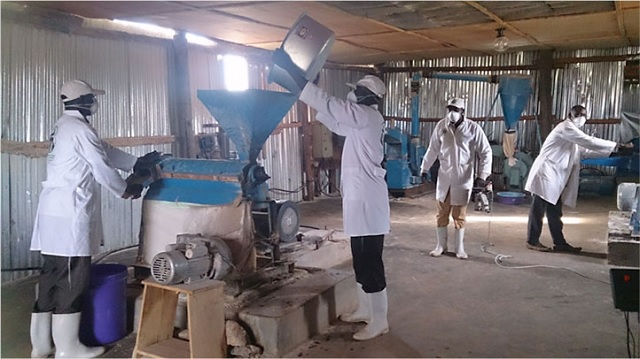
Kampala, Uganda | THE INDEPENDENT | Leaders under Lwakhakha cross border traders association have embarked sensitizing traders on how to clean their cereal agricultural products.
This week, government of Kenya banned the importation of agricultural products like maize on grounds that they are contaminated with aflatoxins harmful to human health.
Semuli Awusi, the chairperson of Lwakhakha cross border traders association says that the purposes of this training is to give traders skills on how to clean their maize so that it can be exported to Kenya when it is clean.
He adds that most traders have been handling maize in a bad way, like drying along the side of the road where vehicles and people pass, and some traders hurry to sell their maize when it not yet dry which makes it rot.
Awusi also says that they are teaching traders to dry maize in clean places and how to pack it when it is dry.
Samuel Kundu and Stephen Musoni, both traders under Lwakhakha cross border traders association say that since the Kenyan government banned their maize from entering Kenya, they have been affected so much in terms of losses. They add that the ban came when they had stocked over 50 tons of maize they invested in and have thus lost heavily.
Emma Bwayo, the newly elected Namisindiwa youth councilor has urged traders at Lwakhakha borders especially youths to maintain cleanliness of their agricultural products such that they have high-quality products to export to Kenya.
John Musila, the LC V chairperson of Manafwa and also now an elected Member of Parliament has condemned what Kenya did yet they are in the East African community. He adds that although they have lifted the ban, the terms and conditions they have put on Ugandan traders are too hard.
Musila also says that Kenya should know that both countries need each other as far as trade is concerned because they also still export their products like milk, detergent, soap among others to Uganda.
*****
URN
 The Independent Uganda: You get the Truth we Pay the Price
The Independent Uganda: You get the Truth we Pay the Price





